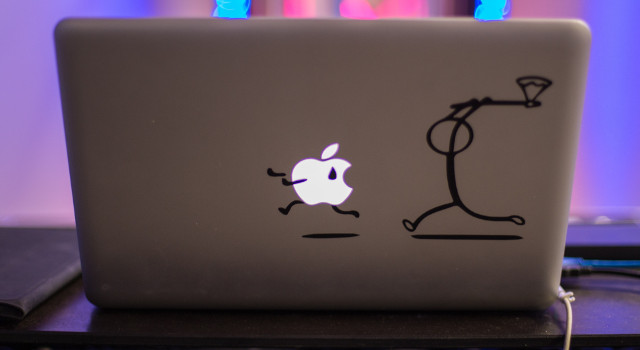
Q: I am interested in your thoughts on investing in Apple stock (AAPL). I suspect that some of the reported glitches on the new iPhone 4 have created a buying opportunity. And when Apple opens the iPhone to carriers other than AT&T, they could double or triple their sales. After participating in the frenzy to purchase the new iPad, I expect their customer loyalty will remain strong.
Sincerely,
Stop Coveting My iPad
Dear Stop Coveting,
Your question reveals that you are more interested in speculation than you are in investing.
Apple stock has risen nearly 100% in the last year, and attempting to time the purchase of a hot stock with strong momentum is a game played by speculators. John Maynard Keynes wrote that speculation is “the activity of forecasting the psychology of the markets.” If speculators are psychologists, Mr. Market is bipolar. At times, highs bounce to lows within a day. At other times, a long-lasting euphoria breaks without notice. Forecasting these psychological and emotional shifts is a rewarding practice for only a small percentage of the most highly trained professionals.
Some mathematicians argue that training has little to do with a speculator’s success. Have 100 people roll a pair of dice two times, and you are likely to have three of them roll pairs on both.
Wall Street loves speculators because they often get out of a stock just as quickly as they got in. And every time a trade is made, a coin in a Wall Street coffer rings. Studies by John Bogle, founder of Vanguard, show a direct correlation between turnover and performance. The more often you trade, the less likely you are to achieve a market return.
Your assumption that Apple sales will grow rapidly is likely true. What you fail to realize is that rocket ship growth is already factored into the projections of stock analysts and no guarantee of an adequate return on your money. Hundreds of professionals estimate the future sales and earnings prospects of publicly traded companies every day. As I write, Apple stock is trading at a price-to-earnings (P/E) ratio of 20, which means an investor is paying $20 for every dollar of reported earnings.
This compares with an average P/E ratio of 15 for the S&P 500 companies. Focusing on valuations, stock market participants are paying 33% more for Apple and betting that Apple’s growth will pay for this premium. Apple may be able to pull this off but the odds are not in their favor. Studies report that stocks trading at a lower price to earnings (P/E) multiple, on average, will outperform those trading at higher multiples. Speculators see a quick profit but often do not realize that they are paying a healthy premium to enjoy the ride.
Alternatively, investors apply thorough analysis and historically validated disciplines when they allocate capital. Prices may go up and down, but at the end of the day investors’ return on capital will be based on business earnings. When investors make a capital allocation, they are not simply investing in the price momentum of a stock. They are becoming co-owners in a business and entrusting corporate stewards with their capital. This is how Warren Buffet views his investments, and many would be better off to adopt his philosophy.
There is nothing wrong with wanting to speculate on Apple stock. It can be fun to share the financial outcomes of a company you admire (when the stock price is rising). However, I recommend that you limit your speculation money to less than 10% of your investment portfolio and keep this money separate from your investment assets.
Photo by Pixabay from Pexels